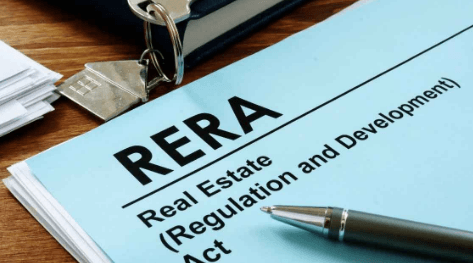The Lucknow bench of the Allahabad High Court has addressed the issue of numerous real estate projects in the state capital operating without proper registration with the Uttar Pradesh Real Estate Regulatory Authority (RERA). The court has directed RERA and the Lucknow Development Authority (LDA) to provide details of actions taken against these unregistered projects and has scheduled the next hearing for July 16.
The bench, comprising Justice Rajan Roy and Justice OP Shukla, issued the order in response to a Public Interest Litigation (PIL) filed by Kailash Chandra Pandey. The court expressed its dissatisfaction with the lack of response from the authorities, despite having issued a directive a month earlier. The court’s stern stance underscores the urgency of addressing the proliferation of unregistered real estate projects in Lucknow. The petitioner official, highlighted that hundreds of real estate projects have emerged in the state capital, many of which are neither registered with RERA nor have received approval from the LDA. Official argued that despite numerous complaints lodged with both RERA and the LDA, no substantial action had been taken. RERA acknowledged that it had issued notices to at least 500 projects. However, the court found this response inadequate and has requested RERA to submit an affidavit detailing the actions taken in response to the complaints. The court emphasized the necessity of a prompt and effective regulatory response to ensure compliance with real estate regulations.
The bench has also warned that if the LDA fails to submit its reply within the next ten days official of the LDA will be required to appear before the court via video conferencing on the next hearing date to explain their lack of cooperation in the PIL proceedings. This judicial intervention highlights the critical role of regulatory compliance in the real estate sector, aiming to safeguard the interests of homebuyers and maintain the integrity of urban development. The court’s demand for transparency and accountability from RERA and LDA signifies a stringent approach towards ensuring adherence to statutory norms.
As the hearing progresses, it is anticipated that both RERA and LDA will take concrete steps to address the concerns raised by the petitioner and the court. This case underscores the broader implications for regulatory oversight in the real estate sector, emphasising the need for robust mechanisms to monitor and manage real estate developments in urban centres. The Allahabad High Court’s proactive stance serves as a reminder of the judiciary’s role in upholding regulatory standards and ensuring that public authorities execute their duties effectively. The forthcoming affidavit from RERA and the response from LDA will be pivotal in determining the future course of action and setting a precedent for handling similar issues across the state.


